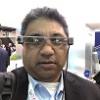Aruba, a Hewlett Packard Enterprise Company, is holding its annual Atmosphere conference in Las Vegas this week. The show is generally a pretty hard-core networking event for a highly technical audience, but this year the event has evolved as Aruba has shifted much of its messaging to be more business relevant -- and that makes sense given Wi-Fi has become so critical to digital transformation.
An interesting supporting proof point of this comes from a CIO event I moderated a couple of months ago regarding digital transformation. On my panel, I had four CIOs, each from a different industry vertical. Every one of them discussed the importance of high quality Wi-Fi and one even made the argument that the technology should be thought of as the foundation for digital transformation.
Aruba Takes an Ecosystem Approach
One of the more interesting business-focused announcements from the event was enhancements made to Aruba's Mobile First Architecture for a "smart digital workplace," encompassing all aspects of the physical work environment including real estate, facilities infrastructure, unified communications, room registration, visitor access, and the wired and wireless network. Everything is being connected today, and the network is the fabric that makes a smart digital workplace possible.
Aruba can obviously provide the network infrastructure and location services, but to fulfill on the other areas, it has added a new category of partners to its ArubaEdge Technology Partner Program. Key partners are a "who's who" in their respective industries and includes the following companies:
- Global real estate: CBRE, Deloitte
- Smart furniture: Herman Miller
- Lighting, situational awareness and space management: Lunera, AccelTex Solutions, Patrocinium, SpaceIQ
- Unified communications: Zoom, Microsoft Teams
- Visitor registration and room reservations: Teem, Robin, Envoy
- Professional services: HPE Pointnext
Digital technologies such as mobility, Internet of Things (IoT), and the cloud are certainly changing the way we work, but they can also evolve the workplace to improve productivity by blending the physical and digital worlds. This certainly supports the thesis that the network is the foundation for digitally transforming a building into a smart office. The network needs to be highly resilient, secure, and able to deliver personalized services that can remove many of the things that prevent workers from being creative and collaborative. This requires an ecosystem of vendors to work together so the experience is seamless.

It's Time to Connect Everything in a Workplace
Readers of this site are familiar with the likes of Zoom and Microsoft, but many of the other names on Aruba's list of partners may not be as familiar. However, they are integral to a smart digital workplace. CBRE is a major commercial real estate company that is one of the leaders in building automation to improve efficiency and sustainability. Inside the workplace, Herman Miller brings connected furniture to the party, such as desks that are ergonomically customizable as well as a wide range of accessories. Lunera is one of the smart lighting providers. Lighting is something workers may take for granted but when its turned into an IoT device it can come on and turn off automatically, be turned down when screens come on, harvest daylight and be much more cost effective. All of these components need to work together to provide a smart and digital experience, hence the Aruba-led architecture.
A Wide Range of Stakeholders Benefit
The value of the smart digital office isn't just for IT. In fact, IT might be one the stakeholders that derives the least value from this, other than cutting down on support calls. This is tailored more to the following groups:
- Employees will get a modernized, flexible work place that is highly customizable. This will enable workers to adapt the space to whatever tasks are at hand, whether it's an individual that needs some quiet time or a large group that requires an automated meeting room to fuel collaboration.
- Business leaders obviously want more productive employees, but a dynamic workspace that's fun to work in, where things don't get in the way, will improve retention and employee engagement. A modernized workplace will also attract younger Millennials that don't like to work in old, stodgy office environments.
- Facilities and real estate want better efficiency and space optimization. Most buildings have a bunch of wasted space, but it's often hard to know what's being used and what isn't without the data and analytics. A smart digital office lets facilities understand what resources are overused or underused and provide insights to make necessary changes. Also, connected buildings can help organizations become greener, which is something with which everyone should be concerned.
A great workplace isn't limited to just the shiny new technology. That's very important, but it also needs to integrate seamlessly into the physical building, rooms, and even furniture. Aruba's architectural approach and ecosystem can help companies transform their workplace but minimize the risk that's typically associated with trying to bring this many components of a solution together.
Related content:
Follow Zeus Kerravala on Twitter and Google+!
 @zkerravala
@zkerravala
 Zeus Kerravala on Google+
Zeus Kerravala on Google+










